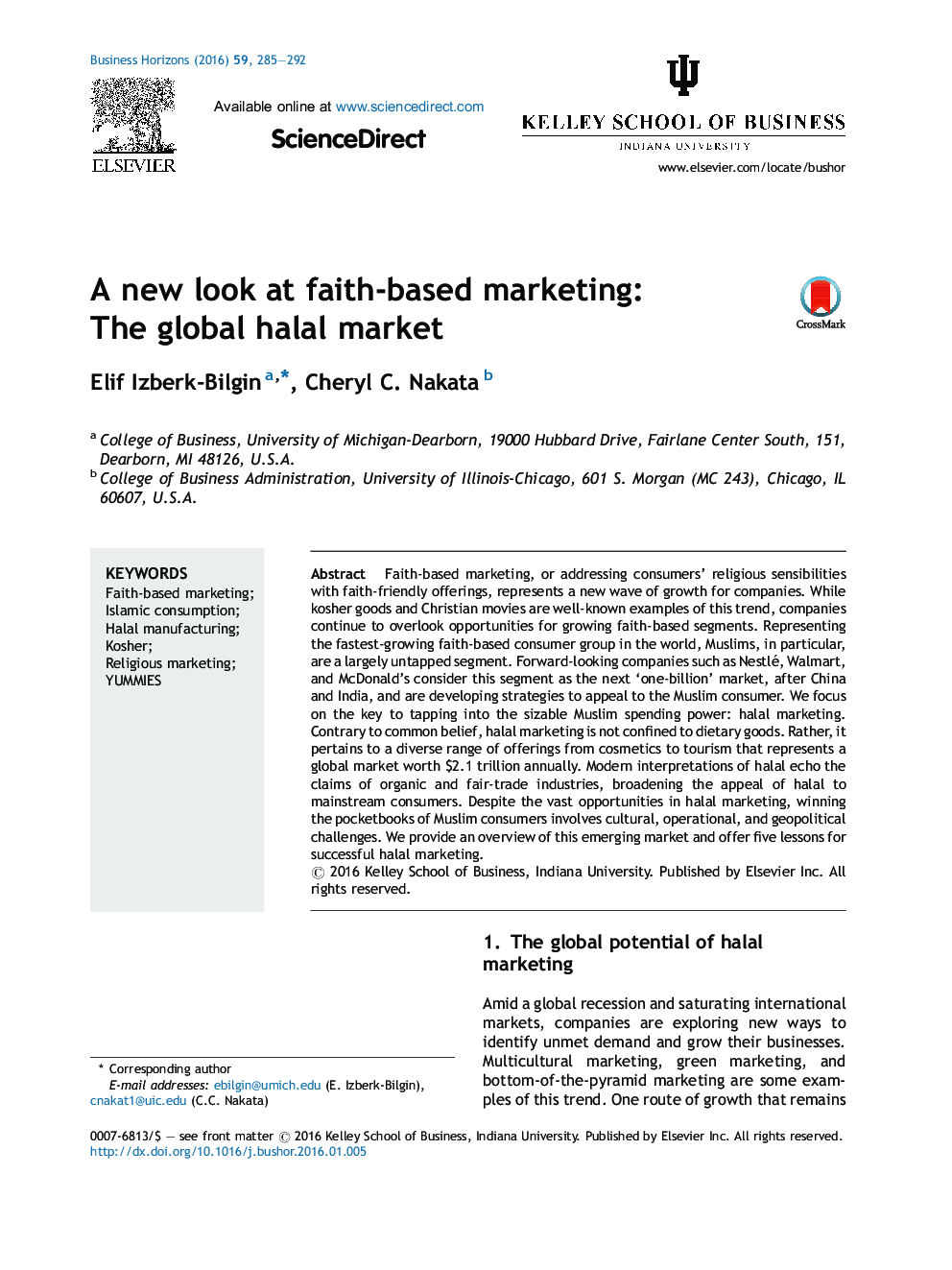| Article ID | Journal | Published Year | Pages | File Type |
|---|---|---|---|---|
| 1013864 | Business Horizons | 2016 | 8 Pages |
Faith-based marketing, or addressing consumers’ religious sensibilities with faith-friendly offerings, represents a new wave of growth for companies. While kosher goods and Christian movies are well-known examples of this trend, companies continue to overlook opportunities for growing faith-based segments. Representing the fastest-growing faith-based consumer group in the world, Muslims, in particular, are a largely untapped segment. Forward-looking companies such as Nestlé, Walmart, and McDonald's consider this segment as the next ‘one-billion’ market, after China and India, and are developing strategies to appeal to the Muslim consumer. We focus on the key to tapping into the sizable Muslim spending power: halal marketing. Contrary to common belief, halal marketing is not confined to dietary goods. Rather, it pertains to a diverse range of offerings from cosmetics to tourism that represents a global market worth $2.1 trillion annually. Modern interpretations of halal echo the claims of organic and fair-trade industries, broadening the appeal of halal to mainstream consumers. Despite the vast opportunities in halal marketing, winning the pocketbooks of Muslim consumers involves cultural, operational, and geopolitical challenges. We provide an overview of this emerging market and offer five lessons for successful halal marketing.
